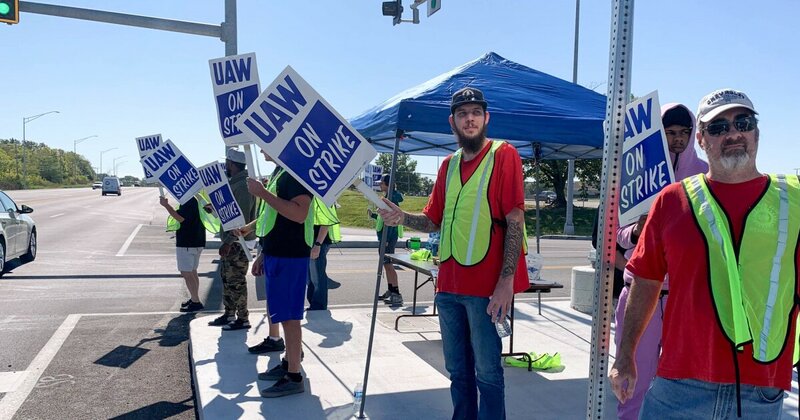On Day 4 of the United Auto Workers strike, union member Sonya Wagner is determined. She has worked at General Motors Co.'s Wentzville Assembly plant for 10 years.
“We want to end the tiers [system] — no more second-class workers — restore COLA [cost-of-living adjustments], fair pay for our families, secure jobs, no plant closures, and good EV [electric vehicle] jobs,” she said. “We don't expect to make what a CEO makes, but we expect to make a livable wage, where we can at least buy the products we are making.”
Wagner and her colleagues were among the first UAW members in the nation to strike against General Motors, Ford and Stellantis. All three companies say there are limits to what they can pay their workers.
UAW President Shawn Fain told NPR the union had "minimal conversations" with all three companies over the weekend.
"We have a long way to go," he said. "And if the company does not respect the demands of our workers, then we will escalate action."
Jake Rosenfeld, a sociology professor at Washington University in St. Louis, said it is notable that the UAW strike comes after months of heightened strike activity in the U.S.
“What you've seen in the last year or two — certainly as we emerge from the pandemic — is that workers and the unions that represent them are much more willing to exercise their muscle in ways we haven't seen in decades,” he said.



 Wentzville
Wentzville


